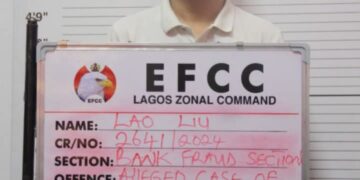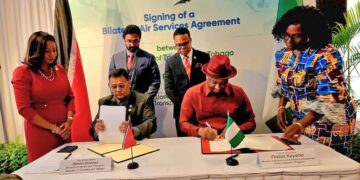The Minister of Marine and Blue Economy, Adegboyega Oyetola, has directed the Nigerian Maritime Administration and Safety Agency (NIMASA) to commence the process that will lead to the long-awaited disbursement of the Cabotage Vessel Financing Fund (CVFF).
This directive marked a significant shift from over two decades of administrative stagnation and ushers in a new era of strategic repositioning of Nigeria’s indigenous shipping.
The CVFF, established under the Coastal and Inland Shipping (Cabotage) Act of 2003, was designed to empower Nigerian shipping companies through access to structured financing for vessel acquisition.
However, successive administrations failed to operationalise the fund until now, but the federal government has signaled a deliberate course correction.
The disbursement of the CVFF would represent not just the release of funds, but a profound commitment to empowering Nigerian maritime operators, bolstering national competitiveness, and fostering sustainable economic development.
Oyetola in a statement issued Tuesday by his Media & Communications Adviser, Dr. Bolaji Akinola, said this was not just about disbursing funds, buy rewriting a chapter in our maritime history.
He added: “For over 20 years, the CVFF remained a dormant promise. Today, we are bringing it to life deliberately, transparently, and strategically.
“We are not merely funding vessels; we are investing in a future where Nigerian shipping companies can stand shoulder-to-shoulder with their international counterparts.
“This is a turning point—one that affirms our commitment to local content, economic resilience, and maritime sovereignty.”
Oyetola explained that the disbursement of the CVFF is anticipated to yield far-reaching benefits.
He said: “It will enable the growth of a stronger, self-sufficient shipping fleet, generate employment opportunities, stimulate local shipbuilding and repair industries, and significantly reduce capital flight associated with foreign vessel chartering.
“We are doing what should have been done years ago—because our vision is clear. A strong indigenous fleet is not just a matter of pride; it is a strategic national asset. Through this intervention, we will be securing jobs, strengthening our economy, and redefining our place in the global maritime economy.”
Qualified applicants, it said could access up to $25 million each at competitive interest rates to acquire vessels that meet international safety and performance standards.












